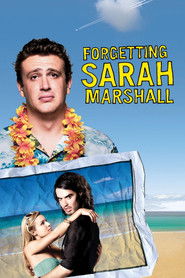Towards the end of the film, it finally dawned on me that Jason Segel’s character was depressed long before Sarah Marshall dumped him. The opening montage was his depression on whole display, and the film just never addressed it. It was “normal” for him, perhaps undiagnosed, perhaps simply just glossed over by his friends and family.
But here’s a man who, despite the fact he has a cool-as-heck job, can’t stop watching TV and eating Froot Loops out of a massive salad bowl every day. The dude is chronic.
For me, the entire thing felt normal for the first 90 minutes of the 110-minute running time because I have chronic depression, and genuinely hadn’t thought of his behaviour as normal. But then he’s practically attacking his piano, singing “Everybody hates me, I should see a therapist, I don’t want to” and I think to myself, “This guy is me. I feel so seen.”
All of this sounds like the film might be making light of depression, which didn’t feel like the case to me. It felt like it was taking it very seriously, and not naming it was the easiest way to have a real conversation about it in a relatable way. If they named it, the people who have never experienced depression would have tuned right out. That would have been a shame.
Not every joke lands for me (but some of them are A+ material). I don’t like Russel Brand (and thankfully get to cash in on that here). But mostly, I felt like the film let me catch a glimpse of myself from an outsider’s perspective — a rare gift in an unexpected venue.
